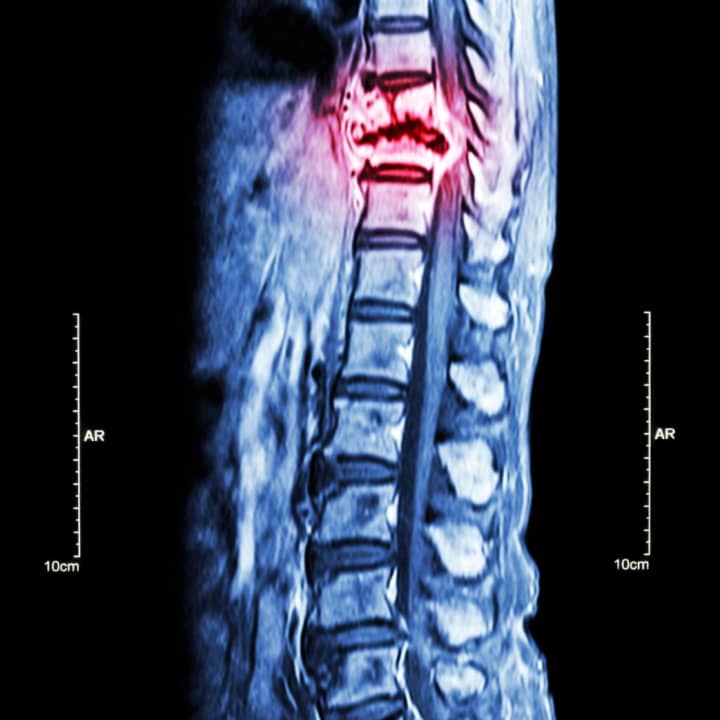Regardless of whether cancer starts in the bone or travels there from elsewhere, bone tumors can be very painful and can lead to disabling fractures. Doctors use a variety of approaches to treat bone cancers, with an eye on saving affected limbs, slowing cancer growth and extending survival and improving patients' quality of life.
Treatment options may include:
- Surgery to remove the tumor while sparing an affected limb, or the use of allografts (donated bone tissue) or prostheses to replace bone that has been removed. Surgery can also be utilized to stabilize the bone with metal plates and rods that allow a person to walk without risk of fracture while they receive other treatments.
- Chemotherapy to destroy cancer cells in bone tissue and shrink tumors. Giving chemotherapy before surgery can make some inoperable tumors operable.
- Targeted therapies that block the molecules driving the growth of bone tumors.
- Hormone therapies that hinder the actions of hormones that fuel cancer growth, often used to treat metastases from breast and prostate cancers.
- Radiopharmaceuticals, which travel to sites where bone cancer resides and release radiation to kill cancer cells.
- Radiation therapy for shrinking bone tumors and relieving pain due to bone metastases.
- Bisphosphonates which slow the breakdown of bone caused by metastases.
- Immunotherapies which boost the power of the immune system to find and kill cancer cells.
- Ablation techniques, which use extreme heat or cold, applied through a needle, to destroy bone metastases.
- Bone cement to strengthen or stabilize bones weakened by cancer.
The Importance of Clinical Trials
Primary bone cancers and bone metastases are complex diseases that can be challenging to treat. For many patients, a clinical trial of a promising new therapy offers the most hope. These studies and other advances in care are best found at academic medical centers such as NewYork-Presbyterian, where teams of specialists have access to the latest treatments for bone cancer.
NewYork-Presbyterian Cancer Centers provide high-quality, comprehensive cancer care at convenient locations throughout the New York metropolitan area, Westchester and the Lower Hudson Valley and provide a comprehensive program of cancer services in state-of-the-art, comfortable environments. Board certified, disease-focused medical oncologists as well as specialized surgical and radiation oncologists collaborate in a multidisciplinary team of cancer specialists to provide each patient with an individualized plan of care. To find a location, visit nyp.org/cancerlocations.
NewYork-Presbyterian is one of the largest and most comprehensive hospitals in the nation, ranked New York’s No. 1 hospital for the 16th consecutive year, and No. 6 in the United States, according to U.S. News & World Report. Affiliated with two academic medical colleges – Columbia University College of Physicians and Surgeons and Weill Cornell Medicine, NewYork-Presbyterian brings together internationally recognized researchers and clinicians to develop and implement the latest approaches for prevention, diagnosis and treatment. The Herbert Irving Comprehensive Cancer Center at NewYork-Presbyterian/Columbia University Medical Center is one of only three NCI-designated comprehensive cancer centers in New York State. NewYork-Presbyterian provides comprehensive cancer care at all of our locations across the New York Metro area, including Westchester County and the Hudson Valley. Learn more at nyp.org/cancer.



